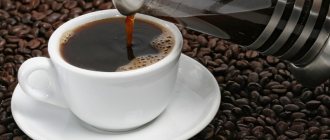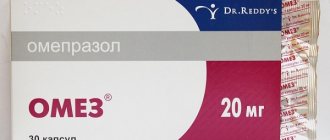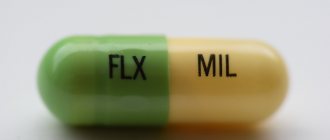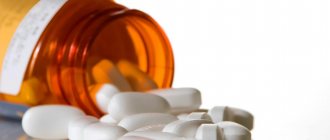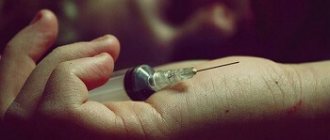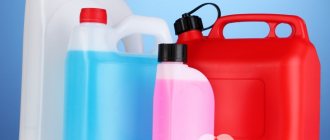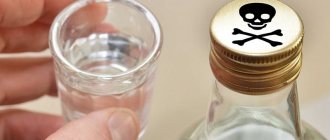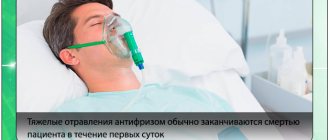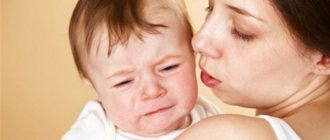In our age of constant rush and stress, harmful environmental conditions, people are increasingly faced with increased anxiety, insomnia and nervousness. To restore peace of mind, people are increasingly turning to various medications. One of the effective sedatives is afobazole, which was developed by Russian scientists to combat anxiety and fear.
Composition of Afobazole
Afobazole contains 5 or 10 mg of the substance Afobazole as an active ingredient and auxiliary components:
- potato starch (Amylum solani);
- microcrystalline cellulose (Cellulose microcrystallic);
- milk sugar (Saccharum lactis);
- povidone (Povidonum);
- magnesium stearate (Magnesium stearate).
The active ingredient of the drug is a derivative of 2-mercaptobenzimidazole and is a selective non-benzodiazepine tranquilizer (anxiolytic).
The drug does not have a stimulating effect on benzodiazepine receptors, but has the ability to act on sigma-1 receptors in the brain, located primarily in areas responsible for memory, emotions, sensory perception and fine motor skills.
Afobazole has a stabilizing effect on the cell membranes of γ-aminobutyric acid receptors, while helping to restore their sensitivity to endogenous inhibitory mediators.
In addition, Afobazole helps to increase the bioenergetic potential (BEP) of nerve cells and, having a pronounced neuroprotective effect, protects them from damage.
The drug has a dual effect on the human body, which is expressed as a combination of sedative (anti-anxiety) and mild stimulating effects.
It reduces the severity (or completely eliminates) feelings of fear, somatic and autonomic manifestations of anxiety, emotional tension, increased irritability, relieves symptoms of post-traumatic stress disorder, symptoms of withdrawal syndrome, as well as other specific conditions.
It is considered especially appropriate to prescribe the drug to patients with pronounced asthenic features, which manifest themselves in the form of:
- suspiciousness;
- increased vulnerability;
- mood variability;
- uncertainty, etc..
The drug prevents the occurrence of membrane-dependent changes in receptors that are sensitive to GABA. The action of Afobazole is not accompanied by hypnosedative and muscle relaxant effects. During treatment, they did not experience deterioration in memory function or impaired concentration.
The patient's condition improves, as a rule, by the fifth to seventh day of treatment. The maximum effect is observed approximately three to four weeks after the first dose of the tablets and persists for another seven to fourteen days after discontinuation of the drug (depending on the individual metabolic characteristics of the particular patient).
Afobazole is well absorbed from the gastrointestinal tract. The drug is characterized by a high degree of affinity for the cells of the human body and a high degree of binding to plasma proteins.
The medicine is quickly excreted from the body, which significantly reduces the likelihood of an overdose. The average half-life is about 50 minutes.
Active substance: fabomotizole (fabomotizole dihydrochloride) – 5 mg and 10 mg. Excipients: potato starch - 48 mg, microcrystalline cellulose - 40 mg (for a dosage of 5 mg) and 35 mg (for a dosage of 10 mg), lactose monohydrate - 48.5 mg, medium molecular weight povidone (medium molecular weight polyvinylpyrrolidone medical, Kollidon 25) - 7 mg, magnesium stearate - 1.5 mg.
Description: white or off-white tablets, flat-cylindrical with a bevel.
Pharmacotherapeutic group: anxiolytic agent (tranquilizer).
ATX code: N05BX.
Afobazole® is a selective non-benzodiazepine anxiolytic.
Acting on sigma-1 receptors in nerve cells of the brain, Afobazol® stabilizes GABA/benzodiazepine receptors and restores their sensitivity to endogenous inhibitory mediators. Afobazole® also increases the bioenergetic potential of neurons and has a neuroprotective effect: it restores and protects nerve cells.
The effect of the drug is realized primarily as a combination of anxiolytic (anti-anxiety) and mild stimulating (activating) effects. Afobazol® reduces or eliminates feelings of anxiety (preoccupation, bad feelings, fears), irritability, tension (fearfulness, tearfulness, anxiety, inability to relax, insomnia, fear), depressive mood, somatic manifestations of anxiety (muscular, sensory, cardiovascular, respiratory, gastrointestinal symptoms), autonomic disorders (dry mouth, sweating, dizziness), cognitive disorders (difficulty concentrating, impaired memory), incl.
arising from stress disorders (adaptation disorders). The use of the drug is especially indicated in persons with predominantly asthenic personality traits in the form of anxious suspiciousness, uncertainty, increased vulnerability and emotional lability, and a tendency to emotional stress reactions.
The effect of the drug develops on days 5-7 of treatment. The maximum effect is achieved by the end of 4 weeks of treatment and persists after the end of treatment for an average of 1-2 weeks.
Afobazole® does not cause muscle weakness, drowsiness and does not have a negative effect on concentration and memory. When using it, addiction does not form, drug dependence does not develop, and “withdrawal” syndrome does not develop.
Anxiety syndrome
Prolonged stay under the influence of an unreasonably caused state of anxiety leads to a significant deterioration in the quality of life. Psychological discomfort can lead to the development of a number of diseases that are based on stress. Constant nervous tension is not the norm for psychological stability of the behavioral functions of the human body and is considered the worst manifestation of the activity of the central nervous system. In order to relieve anxiety syndrome, unreasonable fears and relieve nervous tension, Afobazol was created. But, like all medicinal products, the product has special recommendations for its use. Afobazole also has side effects and a number of contraindications for its use.
Read: Metformin: side effects, mechanism of action and possible side effects
Pharmacodynamics and pharmacokinetics
After oral administration, Afobazole® is well and quickly absorbed from the gastrointestinal tract.
The maximum concentration of the drug in plasma (Cmax) is 0.130 0.073 μg/ml; time to reach maximum concentration (Tmax) – 0.85 0.13 hours.
Metabolism: Afobazole® undergoes a “first pass effect” through the liver; the main directions of metabolism are hydroxylation at the aromatic ring of the benzimidazole ring and oxidation at the morpholine fragment.
Afobazole® is intensively distributed throughout well-vascularized organs; it is characterized by rapid transfer from the central pool (blood plasma) to the peripheral (highly vascularized organs and tissues).
The half-life of Afobazole® when taken orally is 0.82–0.54 hours. The short half-life is due to intensive biotransformation of the drug and rapid distribution from blood plasma to organs and tissues. The drug is excreted primarily in the form of metabolites and partially unchanged in urine and feces.
Patient reviews of effectiveness
There are side effects of Afobazole in women. Negative reviews from this category of patients appear only due to the fact that they use sedatives much more often. Often there are a wide variety of responses on the Internet. Some people claim that there are no side effects and the drug helps well. Great for helping get rid of anxiety.
But there are those patients who note improvement only in mild disorders and depressive states. If a person has a more severe form of nervous and mental illness, then the medication is not effective.
Release form
Tablets of 5 mg or 10 mg.
10, 20, 25 or 30 tablets per blister pack.
30, 50, 100 or 120 tablets in polymer jars.
Each jar or 3, 5 or 10 contour packs of 10 tablets, or 1, 2, 3, 4 or 6 contour packages of 20 tablets, or 2 or 4 contour packages of 25 tablets, or 1, 2, 3 or 4 contour packs Packages of 30 tablets along with instructions for use are placed in a cardboard pack.
Afobazole is available in tablet form. The tablets are flat, cylindrical, with a bevel, packaged in 10 or 25 pieces in blister packs. Their color can vary from white to white with a cream tint.
Afobazol tablets can also be produced packaged in 30, 50 or 100 pieces in jars with a polymer lid.
Prevention
The main preventive measure to prevent an overdose of Afobazole is compliance with the dosage regimen determined by the doctor.
It is forbidden to take tablets in quantities exceeding the recommended single dose, even if the drug appears to be ineffective.
The tranquilizer should be stored in places where it cannot be easily taken by children or relatives suffering from mental disorders. It is advisable to monitor the intake of Afobazole by elderly family members.
Interaction
The drug Afobazol belongs to the pharmacotherapeutic group of anxiolytic drugs.
The possibility of nausea, vomiting and stool disorders cannot be ruled out. In rare cases, a side effect of taking Afobazole is a headache, which does not require specific treatment, dosage changes or discontinuation of the drug and goes away on its own.
Afobazole has no effect on the depressive effect of ethyl alcohol and the hypnotic (hypnotic) effect of sodium thiopental (a drug for ultra-short-acting inhalation anesthesia).
Potentiates the antiepileptic effect of Carbamazepine and enhances the tranquilizing effect of Diazepam.
The drug Afobazole is a sedative. It has a beneficial effect on the nervous system, relieves irritation and helps you sleep. Treat various mental disorders.
Medicine made in Russia. Differs from benzodiazepines - there are no severe side effects. Drugs of this type are available in pharmacies only with a doctor's prescription. Afobazole can be purchased freely - no prescription is needed. Used during mild nervous disorders. More severe lesions are preferred to be treated with other effective drugs.
Drug with medicinal properties:
- Relieves nervous anxiety, feelings of fear, anxiety;
- A high concentration of calcium cations has a negative effect on nerve cells - the drug blocks their influence;
- Stimulates areas of the brain, helping to improve memory;
- Increases the efficiency of people engaged in mental work.
The medicine does not have a short-term effect. A single pill will not instantly relieve stress. It will take several days of treatment to restore mental health and normalize sleep patterns.
They prefer to recommend the medicine to people prone to depression. A strong emotional reaction can cause complications and negative consequences for a person. But the substance is not capable of stopping an aggressive, panicky state. You cannot prescribe a dosage for treatment on your own.
Allergic reactions are possible.
Rarely - headache, which usually goes away on its own and does not require discontinuation of the drug.
Afobazol® does not interact with ethanol and does not affect the hypnotic effect of thiopental. Enhances the anticonvulsant effect of carbamazepine. Causes an increase in the anxiolytic effect of diazepam.
Treatment
There is no antidote that blocks the action of Afobazole. Treatment is carried out in the toxicology department. Therapy:
- The patient is given intravenous rehydration solutions to replenish the water and electrolyte balance.
- Glucose promotes the active movement of oxygen through the bloodstream, which accelerates protein metabolism.
- A course of diuretics is prescribed, which will stimulate the work of the kidney cells to eliminate the poison.
- Cardiac drugs are administered to support the heart muscle.
- To restore the function of the respiratory system, caffeine 20% is administered.
- The vitamin complex replenishes mineral deficiency.
Treatment is carried out under the supervision of a doctor. The patient is in the hospital until the toxic compounds are completely eliminated and the body is restored.
Indications for use of Afobazol
To understand why Afobazole is prescribed to a patient and why these tablets do not help, the pharmacodynamic characteristics of the drug should be taken into account.
According to the annotation, the indications for use of this drug are:
- anxiety states, including mental disorders that are accompanied by a persistent feeling of anxiety that has no connection with specific objects or events, asthenic neuroses, disorders of adaptive reactions (adaptation disorders);
- anxiety disorders caused by various dermatological, oncological, somatic (lupus, hypertension, bronchial asthma, coronary artery disease, arrhythmia, etc.) and other diseases;
- anxiety states observed during VSD (in combination with other measures, since drug therapy for vegetative-vascular dystonia only temporarily relieves symptoms, but does not eliminate disturbances in the functioning of the nervous system);
- sleep disturbances resulting from increased anxiety;
- neurocirculatory dystonia (NCD);
- symptoms of cyclic syndrome in women (PMS);
- alcohol withdrawal (alcohol withdrawal syndrome);
- withdrawal syndrome that occurs when quitting cigarettes.
Contraindications for Afobazole are:
- hypersensitivity or intolerance to the active substance or any of the auxiliary components of the drug;
- galactosemia (galactose intolerance);
- monosaccharide intolerance (glucose-galactose malabsorption);
- lactase deficiency (lactase deficiency).
The drug is also contraindicated for children and adolescents under 18 years of age, women during pregnancy and women who are breastfeeding.
The substance is considered safe and non-toxic, and therefore is gaining popularity among the population. Does not provoke addiction with prolonged use. It has a positive effect on the psyche, irritated by external manifestations. But in parallel with the beneficial properties, the substance has contraindications that are recommended to be taken into account.
Contraindications for use:
- Individual intolerance to the active substance or other components;
- For women during pregnancy, the first trimester is especially dangerous;
- You cannot take medicine while breastfeeding - then the child is transferred to artificial nutrition;
- Children under 18 years of age are not recommended for treatment.
The drug is usually prescribed to adults when diagnosing nervous or mental disorders in the patient’s well-being.
Indications for use:
- Malignant neoplasm – oncology;
- Increased emotional background;
- Disorders of the thyroid gland – hormonal imbalance;
- Nervous disorder causing insomnia;
- To relieve hangover syndrome;
- Smoking cessation process;
- Cardiac diseases.
The drug is available in tablet form and contains 10 mg of active substance. It is available for free sale in the pharmacy chain.
You need to take 1 tablet 3 times a day after meals. It is recommended to take the substance with a sufficient amount of water. The course of treatment is calculated for 20-25 days. The duration of treatment depends on the severity of the disease.
The doctor has the right to double the dose based on the patient’s medical conditions. To relieve a hangover, take a tablet no more than twice a day. The dose and duration of administration are determined by the attending doctor. You should not take the drug on your own.
Use on the recommendation of a specialist and according to a prescription does not cause side effects. Sometimes an allergic reaction and short-term painful spasms in the head area may occur. There is no need to stop taking it; the discomfort will gradually go away.
Afobazol® is used in adults for anxiety conditions: generalized anxiety disorders, neurasthenia, adaptation disorders, in patients with various somatic diseases (bronchial asthma, irritable bowel syndrome, systemic lupus erythematosus, coronary heart disease, hypertension, arrhythmias), dermatological, oncological and other diseases.
Individual intolerance to the drug. Galactose intolerance, lactase deficiency or glucose-galactose malabsorption. Pregnancy, lactation period. Children under 18 years of age.
When not to use
Afobazole is a drug that has a sedative effect on the nervous system. Prescribed by a specialist for a variety of psychological disorders.
The medication does not have toxic properties, therefore it is quite popular among patients. It is not addictive, there is no drug withdrawal syndrome after the end of treatment. Despite the positive qualities of the medicine, Afobazole has contraindications for use.
When not:
- Intolerance to the components of the drug,
- Pregnancy period
- Lactation,
- For children under eighteen years of age.
If a woman is prescribed a similar drug during lactation, then the baby is transferred to artificial formulas.
Causes and consequences of overdose with Afobazol
Why does an overdose of Afobazole occur? As a rule, the main reason is a violation of the doctor’s prescriptions - taking pills outside of the plan or increasing the number of capsules during a single use.
How many tablets does it take to become poisoned? What is the lethal dose of this substance? Taking a dosage forty times higher than prescribed can provoke depression of the nervous system and disruption of the normal functioning of the body.
Adverse consequences are possible if you use an expired drug and self-medicate without the advice of a medical professional.
Is it possible to die from an overdose of such a drug? A fatal outcome cannot be excluded in rare cases when taking Afobazole and drinks containing alcohol simultaneously. How does a drug overdose manifest? What symptoms should you look out for?
Symptoms:
- Apathy and weakness with normal muscle tone,
- Speech impairment
- Constant desire to sleep
- Inhibited state
- Weakening of respiratory functions,
- Headache,
- Convulsive states
- Loss of consciousness in rare cases.
If signs of overdose are detected, it is recommended to stop treatment with Afobazole and contact a medical facility.
What to do if there is a drug overdose? The patient is given first aid and a team of doctors is called.
How can I help you:
- Gastric lavage is performed to quickly remove the medication from the body. The patient is given a large amount of clean water to drink and a gag reflex is provoked. Repeat several times.
- In case of an overdose, it is recommended to give the affected person some kind of sorbent to drink - Activated carbon, Polysorb.
- Strong coffee will help cope with drowsiness and apathy. It is allowed to use instant drink.
- After an overdose, a person needs to drink plenty of fluids to reduce the effect of the drug and speed up the removal of the drug from the body.
After providing first aid, you must visit a medical facility for examination. Signs of an overdose may not appear immediately, but after some time.
There is no specific antidote for Afobazole overdose. In case of severe poisoning, the injured person is placed in a toxicology department, where various procedures are carried out to restore the functionality of the body.
Treatment:
- Introduction of saline solutions,
- Using glucose solution
- Prescription of diuretics,
- Using drugs to normalize the functioning of the cardiac system,
- If respiratory function is impaired, caffeine is administered at a concentration of 20%.
- Various vitamin complexes are prescribed.
After an overdose, the patient is constantly under the supervision of a specialist and remains in the hospital until complete recovery.
Used internally after meals.
Optimal single doses - 10 mg; daily - 30 mg, divided into 3 doses during the day. The duration of the course of use of the drug is 2-4 weeks.
If necessary, on the recommendation of a doctor, the daily dose of the drug can be increased to 60 mg, and the duration of treatment up to 3 months.
With significant overdose and intoxication, the development of sedation and increased drowsiness without manifestations of muscle relaxation is possible. As an emergency solution, caffeine 20% solution in 1.0 ml ampoules is used 2-3 times a day subcutaneously.
The drug does not have a negative effect on driving vehicles and performing potentially hazardous activities that require increased concentration and speed of psychomotor reactions.
The main signs of exceeding the permissible amount of the drug include:
- An increase in blood pressure and tachycardia, which after a short period of time are replaced by a drop in blood pressure and a slow heartbeat.
- Attacks of nausea leading to vomiting and diarrhea.
- Chills, drowsiness, tremors of extremities.
- Loss of coordination, deep fainting.
An overdose can be small, sometimes much higher than the usual rate of use by 40 times. It also happens that it appears after the treatment process. Often, a person who frivolously considers this drug harmless does not follow the instructions for its use. He independently, without a doctor’s prescription, uses it as a sedative.
Sometimes he neglects safety measures and drinks alcohol or other drugs together. Because of this, its effect on the body sometimes increases, and an overdose of Afobazol occurs. There are cases of human death. A very important point is its conservation. It must be stored in a dark place at an ambient temperature of no more than 25 C.
Under these conditions, it can be stored for up to two years. It is non-toxic and overdose does not occur often. As the dose increases, drowsiness occurs. If you add alcohol to this, then the person’s well-being will deteriorate even more. In case of hormonal imbalances, using the drug together with alcohol aggravates the disease, the person becomes very irritable.
Consequences:
- Increased sleepiness.
- Possible fainting.
- Retardation in conversation and reaction to the environment.
- If the overdose is exceeded by more than 40 times the permissible limit, death can occur, but this happens extremely rarely.
An overdose of Afobazole occurs when the time of consumption of tablets is not observed or the permissible daily intake is exceeded.
Symptoms of Afobazole overdose:
- There is muscle weakness, accompanied by apathy in mood;
- Speech defects and difficulties in pronouncing words appear;
- High sleepiness during the day;
- Slow reaction to external stimuli;
- Weakening the function of the respiratory system;
- Severe pain in the head area;
- Muscle cramps;
- Deep fainting.
If signs of intoxication are detected, further consumption of the substance must be immediately stopped. Call an ambulance or go to the clinic yourself to consult a doctor.
In accordance with the instructions for use, Afobazol tablets are intended for oral administration. Before taking the pill, you need to eat.
A single dose of the drug is 10 mg. The recommended daily dose for use of Afobazole is 30 mg. The tablets should be taken in three doses (that is, one 10 mg tablet or 2 5 mg tablets at a time).
Since the maximum therapeutic effect of taking the drug develops only at the beginning of the 4th week, the duration of the course of treatment is usually from 2 to 4 weeks.
Before taking Afobazole, you must consult a doctor. This is due to the fact that certain conditions require an increase in the dose and duration of treatment. Thus, according to indications, the daily dose can be doubled, and the course of treatment extended to 3 months.
An overdose of Afobazole (meaning a significant excess of the therapeutic dose) provokes the development of a sedative effect and increased drowsiness, which is not accompanied by a decrease in the tone of skeletal muscle tissue and a decrease in motor activity.
If symptoms of intoxication of the body appear, Wikipedia recommends subcutaneous administration of 1 ml of caffeine-sodium benzoate 20% solution for injection as emergency aid to the patient. The drug should be injected 2-3 times a day.
First aid
It is recommended to call an ambulance immediately. Before doctors arrive, first aid must be provided to improve the victim’s well-being:
- Gastric lavage will eliminate the effect of the toxin on the mucous membrane. You will need 2 or 3 liters of clean warm water. The patient must immediately drink 0.5 liters of liquid, which will cause a vomiting attack. If not, provoke it yourself by pressing on the root of the tongue with your fingers. Carry out the procedure until clear discharge appears.
- After this, it is useful to take a sorbent - Smecta, Polysorb or Activated carbon. This will help the body rid itself of toxic compounds.
- To raise the patient's tone, it is necessary to drink strong coffee with sugar.
- Until doctors arrive, the victim should constantly drink water in small sips. This will prevent dehydration and increase kidney activity. The toxin will be excreted in the urine.
Ambulance paramedics will take further measures to eliminate the poison from the body and make a decision on hospitalization.
special instructions
The anxiolytic drug is not used in pediatric practice, so tablets are not prescribed to patients under the age of 18 years. This is due to the instability of the central and autonomic system, which is caused by hormonal imbalance in the pubertal period of development.
The components of the drug are metabolized in the liver and excreted primarily through the intestines along with feces. In case of liver failure and severe parenchymal damage, it is recommended to reduce the daily dose of fabomotizole to 20 mg.
The kidneys practically do not take part in the inactivation of drug metabolites and their removal from the body. Therefore, for patients with renal failure, the dosage regimen is not adjusted. The same applies to patients over 65 years of age. Age-related changes in the body have virtually no effect on the pharmacokinetics and pharmacodynamics of the drug Afobazole.
Influence on the ability to drive vehicles and operate machinery. The drug does not have a negative effect on driving vehicles and performing potentially hazardous activities that require increased concentration and speed of psychomotor reactions.
Analogs
At the moment, there is only one structural analogue of the drug in tablet dosage form - Fabomotizol. The drug Neurofazol is a structural analogue in the form of a concentrate for the preparation of an infusion solution.
Indirect analogues include other anxiolytics, especially those that belong to the class of “mild” tranquilizers, for example, Grandaxin, Adaptol or Tenoten. It is worth noting that Afabazole generally has fewer side effects compared to other anxiolytics.
A structural analogue of the drug Afobazol is Neurofazol, which contains fabomotizole. But the substitute is intended exclusively for parenteral administration. Oral medications with similar properties include:
- Tranquesipam;
- Mebicar;
- Adaptol;
- Elzepam;
- Tenoten;
- Selank;
- Fenzitate;
- Noofen.
If necessary, patients are prescribed anxiolytics with more pronounced anti-anxiety activity Alprazole, Phenibut, Diazepam, etc. But they can only be used on the recommendation of a doctor due to the high risk of developing withdrawal syndrome.
Pharmacotherapeutic action
Afobazole is a non-benzodiazepine anxiolytic drug that has pronounced anti-anxiety properties. Fabomotizole molecules act on gamma receptors, which are localized in the brain. This leads to increased sensitivity of GABAA receptors to the effects of inhibitory mediators.
The therapeutic effect of the psychotropic drug is due to the mild stimulating and anxiolytic activity of its active components. Fabomotizol eliminates irritability, fear, tearfulness, anxiety, depression, timidity, etc. A course of medication leads to a decrease in the severity of somatic manifestations of mental disorders, which include: sweating, tachycardia, mydriasis, nervous tics, convulsions.
The anxiolytic exhibits a pronounced tranquilizer effect in patients with pronounced asthenic personality traits. Taking pills for 5-7 days eliminates anxious suspiciousness, emotional lability, unreasonable fears, uncertainty, etc. The effect achieved as a result of pharmacotherapy lasts for 1-3 weeks after completion of the course.
Nosological classification (ICD-10)
Afobazole is a psychotropic drug that has a pronounced anti-anxiety effect. A selective anxiolytic does not have the side effects that are characteristic of most tranquilizers from the benzodiazepine group. Effective in the treatment of generalized anxiety states, neurasthenia, impaired adaptation and other mental disorders.
The anxiolytic drug is used in the pharmacotherapy of anxiety conditions and diseases of the following groups:
- F10.3 withdrawal syndrome provoked by drinking alcohol;
- F17.3 withdrawal syndrome caused by smoking;
- F41.1 persistent mental disorder provoked by anxiety;
- F41.9 anxiety state of unknown origin;
- F43 impaired adaptation and consequences of severe stress;
- F45.9 somatized mental reaction;
- F48 nervous disorder, accompanied by headaches, irritability and fatigue;
- G47.8 disturbance of sleep and wakefulness;
- G90 disturbances in the functioning of the autonomic nervous system;
- N94.3 mental and somatic disorders associated with premenstrual syndrome;
- Z60 mental disorders caused by stressful situations.
| Category ICD-10 | Synonyms of diseases according to ICD-10 |
| F10.3 Withdrawal state | Alcohol withdrawal syndrome |
| Withdrawal syndrome | |
| Withdrawal syndrome in alcoholism | |
| Abstinence | |
| Alcohol withdrawal | |
| Alcohol withdrawal | |
| Alcohol withdrawal state | |
| Alcohol withdrawal syndrome | |
| Post-withdrawal disorder | |
| Post-withdrawal state | |
| Hangover syndrome | |
| Withdrawal syndrome | |
| Alcohol withdrawal syndrome | |
| Alcohol withdrawal syndrome | |
| Withdrawal state | |
| F17.3 Withdrawal condition caused by tobacco use | Withdrawal syndrome when quitting smoking |
| Nicotine withdrawal | |
| F41.1 Generalized anxiety disorder | Generalized anxiety |
| Generalized anxiety disorders | |
| Anxious reaction | |
| Anxiety neurosis | |
| Phobic neurosis | |
| F41.9 Anxiety disorder, unspecified | Severe anxiety |
| Neurosis-like symptoms | |
| Neurosis-like disorders | |
| Neurosis-like conditions | |
| Neuroses with anxiety symptoms | |
| Neuroses with anxiety | |
| Neurotic disorders with anxiety syndrome | |
| Acute situational and stress anxiety | |
| Acute situational stress anxiety | |
| Acute anxiety attack | |
| Depressed mood with elements of anxiety | |
| Psychopathy with a predominance of anxiety and restlessness | |
| Sharp anxiety | |
| Situational anxiety disorder | |
| Alarm state | |
| Susto | |
| Anxious delusional state | |
| Anxious delusional component | |
| Anxious state | |
| Anxiety | |
| Anxiety neuroses | |
| Anxiety disorders | |
| Anxiety disorders in neurotic and neurosis-like conditions | |
| Anxiety states | |
| Anxiety syndrome | |
| Chronic neurotic anxiety | |
| Sense of anxiety | |
| F43 Reaction to severe stress and adaptation disorders | Adjustment disorder |
| Stressful condition | |
| Stress disorders | |
| F43.2 Disorder of adaptive reactions | Mental adjustment disorder |
| F48.0 Neurasthenia | Asthenic form of neurasthenia |
| Astheno-neurotic condition | |
| Asthenoneurotic disorder | |
| Flu of young workaholics | |
| Yuppie flu | |
| Neurasthenic disorders | |
| Neurasthenic conditions | |
| Neurasthenic syndrome | |
| F51.0 Insomnia of non-organic etiology | Situational insomnia |
| Situational sleep disorders | |
| G47.0 Disturbances in falling asleep and maintaining sleep [insomnia] | Insomnia |
| Insomnia, especially difficulty falling asleep | |
| Desynchronosis | |
| Long-term sleep disturbance | |
| Difficulty falling asleep | |
| Difficulty falling asleep | |
| Difficulty falling asleep | |
| Insomnia | |
| Short-term and transient sleep disturbances | |
| Short-term and chronic sleep disorders | |
| Short or shallow sleep | |
| Sleep disturbance | |
| Sleep disturbance, especially during the falling asleep phase | |
| Sleep disorders | |
| Sleep disorders | |
| Neurotic sleep disorder | |
| Shallow, shallow sleep | |
| Shallow sleep | |
| Poor sleep quality | |
| Night awakening | |
| Night awakenings | |
| Sleep pathology | |
| Post-somnia disorder | |
| Transient insomnia | |
| Problems falling asleep | |
| Early awakening | |
| Early morning awakening | |
| Early awakenings | |
| Sleep disorder | |
| Sleep disorder | |
| Persistent insomnia | |
| Difficulty falling asleep | |
| Difficulty falling asleep | |
| Difficulty falling asleep in children | |
| Difficulty falling asleep | |
| Difficulty falling asleep | |
| Persistent insomnia | |
| Deterioration of sleep | |
| Chronic insomnia | |
| Frequent night and/or early morning awakenings | |
| Frequent awakenings at night and a feeling of shallow sleep | |
| G47.8 Other sleep disorders | Kleine-Levin syndrome |
| Minor sleep disturbances | |
| G90 Disorders of the autonomic nervous system | Angiodystonia |
| Vasovegetative manifestations | |
| Vasomotor dystonia | |
| Autonomic dystonia | |
| Autonomic dysfunction | |
| Vegetative lability | |
| Autonomic-vascular disorders | |
| Autonomic disorders | |
| Vegetative-vascular dystonia | |
| Vegetative-vascular disorders | |
| Vegetovascular dystonia | |
| Vegetovascular disorders | |
| Vegetative-vascular dystonia | |
| Neurocirculatory dystonia | |
| Neurovegetative disorders | |
| Cardiopsychoneurosis | |
| Neurocirculatory dystonia of the hypertensive type | |
| Primary neurovegetative syndrome | |
| Autonomic dystonia syndrome | |
| N94.3 Premenstrual tension syndrome | Severe premenstrual syndrome |
| Menstrual psychosomatic disorder | |
| Menstrual syndrome | |
| Premenstrual tension | |
| Premenstrual condition | |
| Premenstrual period | |
| Premenstrual syndrome | |
| Menstruation syndrome | |
| Z60.0 Problems associated with adapting to lifestyle changes | Adaptation |
| Correction of daily biorhythm | |
| Adaptation disorder | |
| Adaptation disorders | |
| Normalization of biological rhythms | |
| Adjustment disorders | |
| Adjustment disorder |
Side effects
The negative consequences of taking Afobazole, according to the summary, include:
- the appearance of a rash on the skin;
- headache;
- skin itching and other manifestations of allergic reactions (lacrimation, rhinorrhea) with intolerance to the components of the composition.
If side effects occur, you should stop taking the drug and contact a specialist to adjust the treatment.
When using a psychotropic medication, undesirable effects occur very rarely. This is due to the fact that fabomotizole is devoid of most of the side effects that are characteristic of tranquilizers of the benzodiazepine group. In rare cases, patients may complain of:
- drowsiness;
- headache;
- decrease in blood pressure;
- skin itching;
- erythematous spots on the skin.
Almost all of the above effects develop with hypersensitivity to the active or inactive components of the anxiolytic drug. If they occur, it is recommended to replace Afobazole with another anti-anxiety drug.
- nervousness
- anxiety
- feelings of anxiety and negative thoughts associated with it
- deep concern
- unreasonable fears
- excessive irritability
- inability to relax
- groundless premonitions about impending troubles
- with deep sleep disorders.
The drug has a wide spectrum of action. He is appointed:
- young people during the active period of their lives
- men and women running their own business
- specialists to increase the level of concentration, for example, vehicle drivers.
The drug Afobazole side effects, as a rule, occur quite rarely. They are associated mainly with individual tolerance to the drug and manifest themselves exclusively as allergic reactions. Also, taking the drug may be accompanied by nausea with or without a gag reflex, diarrhea or diarrhea, minor intestinal disorders, pain in the peritoneum. All symptoms disappear after stopping the drug.
